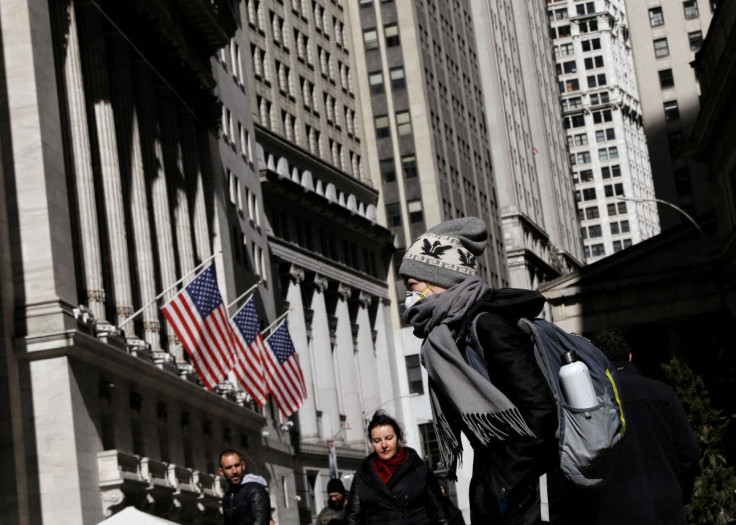Wall St Banks Fear Inflation, Asset Price Deflation, Even Recession

Wall Street's biggest banks sounded a warning over the year ahead on Thursday, citing high inflation, credit concerns, asset price depreciation and companies postponing deals due to market uncertainty.
U.S. banks reported a mixed bag of fourth quarter earnings last month as trading revenue fell after the Federal Reserve scaled back its asset purchases. They are now grappling with high inflation and the likelihood of multiple rate hikes.
Several top executives commented on market conditions at the Credit Suisse Financial Services Forum in Florida.
Bank of America is concerned enough about inflation to stress test its portfolio for the possibility that Fed policymakers are unable to control it and prevent the country going into recession, Chief Executive Brian Moynihan said.
"We have to run those scenarios," he said. "What will hurt the industry generally will be if they have to create a recession. And that's not their goal for sure. They'll hopefully do a great job handling it. We stress test that and we're fine."
Goldman Sachs' Chief Executive David Solomon warned that rampant inflation could be a headwind to growth.
"We're moving from an environment of very easy money and below trend inflation to an environment of tighter money and above trend inflation. The economic environment is different and there will be consequences to that," he said.
Solomon added that "everybody is used to asset appreciation and we might have a period of time where there's less asset appreciation."
Mike Santomassimo, chief financial officer at Wells Fargo & Co, the fourth-largest U.S. bank, noted that credit spreads had been widening and "that's an area to watch to see if there are any cracks that start to emerge".
High inflation and expectations of more aggressive rate hikes from the Fed have whipsawed markets this year, sending the S&P 500 down 7% year-to-date while bond yields have jumped and the yield curve flattened.
Bank shares declined Thursday with the S&P500 banking index down 3%. The S&P 500 was down 2%.
Morgan Stanley Chief Financial Officer Sharon Yeshaya said the bank had seen "a lot of uncertainty in the marketplace over the past couple of weeks" leading to companies putting off transactions.
"We have seen some of the pipelines, which are still healthy, being pushed out," she said. "At this point it doesn't feel like the first quarter of 2022 is going to be the same as the first quarter of 2021."
Trading and investment banking activity had slowed since 2021 but was still healthy, Solomon said.
Bank of America's Moynihan took a similar tone, saying the bank's capital markets business "is down" so far in 2022, even though it continues to see a strong pipeline of customer activity.
Wells' Santomassimo noted that while the bank's consumer and real estate portfolios continue to perform, there had been "a little bit of noise" in auto loans.
However, he said that rising rates would help the bank's ultimate goal to reach a 15% return on tangible equity. When interest rates are higher, banks make more money by taking advantage of the difference between the interest banks pay to customers and the interest they can earn by investing.
"The question will be where rates go and then what impact that has on the economy and the environment we're in," Santomassimo said.
© Copyright Thomson Reuters 2024. All rights reserved.




















